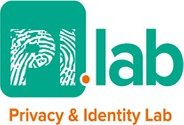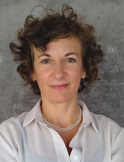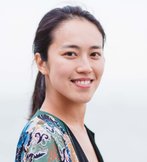The Public PI Laboratory: A collective exploration, and re-imagination of pandemic policy and social life in The Netherlands and beyond
If you want to join the session, mail info@pilab.nl and indicate:
- which roundtable you would like to attend
- whether you want to contribute something to start the discussion
This event will be held online, with hybrid possibilities explored closer to the date.
10th February 2022 14:00 – 16:40 - A collective exploration, and re-imagination of pandemic policy and social life in The Netherlands and beyond.
This PI.lab event brings people with diverse expertise together for an interdisciplinary discussion, and a valuable groupthink exercise. We will address public policy frames and discourses around different people’s social needs during this pandemic period. How are we categorized and characterized in recent policy and public health rhetoric in the Netherlands (and beyond)? How can we respond? Inspired by community-based crisis response methodologies, we invite participants to brainstorm their vision for equitable (post-)pandemic futures.
The effects of pandemic policies on people's well-being persist well beyond the crisis stage. We want to look back, take stock of the present, and look forward. We invite you to think, argue, and tease out important points with us around three major themes: spaces, bodies, and cultures. Who was framed to be where, with whom, and why? Where is safe, who is vulnerable, what is essential? How does this affect the way we perceive who we are and how we act? The overall topic, and a breakdown of thematic sessions are described in more detail below.
For each theme, we are inviting people to contribute a discussion starter: a short, on-topic provocation or presentation. Do you want to contribute? Please get in touch with us! We welcome a diverse public and diversity in contributions, including artistic expressions. Just want to listen, or chip in when a discussion is going? Simply save the date. We will announce the scheduled contributors to those who signed up for the session a week before we’re on.
A note on interaction during the event. We are aware that discussions about pandemic policy on the themes we address can give rise to emotional responses. We will moderate with a strong focus on respectful interaction, in service of mutual enrichment of our thinking around these themes.
A detailed description of the event can be found here.
Each theme (Spaces, Bodies, Cultures) is treated simultaneously, at different ‘roundtables’, which will be held in different break out rooms. Each theme contains two parts of 35 minutes, separated by a 10 minute screen break. At the start of each theme, 2-4 people will pitch a view, an argument, or a reflection. The rest of the time is for public discussion. After the roundtables have concluded, we reconvene for a plenary discussion. Reporters for each theme will reflect on their sessions, followed by a communal ‘thinking forward’ exercise. To allow for ‘winding down’ for participants that appreciate more time to share afterthoughts on the experience, we as organizing will stick around for a bit longer. This will not be part of the official notes that are shared afterwards unless people ask us to share anything expressly.
Program
14:00 - 14:15 Introduction: Aviva de Groot and Evelyn Wan
14:15 - 14:50 Part I - Taking Stock (parallel roundtables)
- Spaces: How did framing around ‘spaces’ affect the people in and out of where they were assigned to be? What responses and critiques to this can we identify?
- Bodies: What kind of affordances did the frames of ‘safety’, ‘vulnerability’, ‘health’ and ‘sickness’ provide? What responses and critiques to this can we identify?
- Cultures: What happens when artistic and cultural production is framed as ‘non-essential’ in ‘pandemic times’? What responses and critiques to this can we identify?
14:50 - 15:00 Break
15:00 - 15:35 Part II - Forward Thinking (parallel roundtables)
- Spaces: What other ‘unit descriptions’ than household could recognize the diversity amongst us and serve different purposes better?
- Bodies: To mend, and to prepare. How might we rethink ‘inclusivity’ and ‘solidarity’ in the aftermath of the pandemic?
- Cultures: Can the arts stage a comeback and how can those in power be convinced of the necessity of the arts in difficult times?
15:35 - 15:45 Break
15:45 - 16:20 Part III - Plenary reporters from the three rooms, closing remarks Aviva & Evelyn
16:20 - 16:40 Informal room for reflection (optional)
Biographies
Aviva de Groot came to the Tilburg Institute for Law, Technology, and Society with backgrounds in filmmaking, legal aid and Information Law. Her phd research focuses on justification of social-epistemic authority of (and by) decision makers. The thesis explores what ‘meaningful information positions’ are for those engaged in explanation practices. It uses the momentum of AI-informed explanation challenges to improve such practices more broadly.
Dr. Evelyn Wan is Assistant Professor in Media, Arts, and Society at the Department of Media and Culture Studies at Utrecht University. Her research is focused on algorithmic governance, the temporalities and politics of digital culture, as well as bots and robots in the cultural imagination. She teaches media and performance theory, philosophy of science, and research methodologies in arts and theatre.


